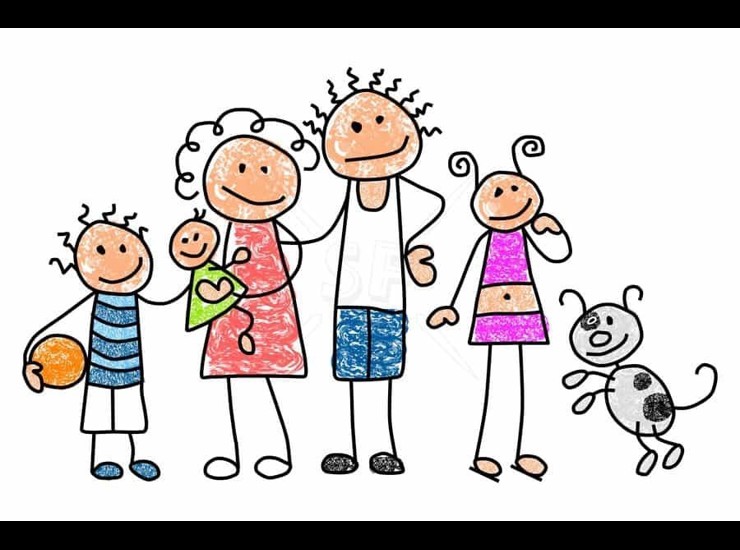
The ongoing pandemic has changed everybody’s lives in ways we could not have imagined. In March this year many of us started working from home and children stopped going to school bringing a whole new dimension to the everyday dynamics of family life. For some families in which English is not the first or only language at home, the lockdown had the potential of changing patterns of language use.
In early April together with colleagues from the Centre for Literacy and Multilingualism at the University of Reading, and colleagues from UCL, Oxford, Cambridge, Mother Tongues and WeLiveLanguages, we launched a survey for multilingual families in the UK and Ireland. The lockdown was an unmissable opportunity to see how more time at home with immediate family and the shift to virtual communication with extended family, friends, and school might change the use of English and other family languages. The study remained open until July and we were overwhelmed with the response.
More than a thousand parents completed the 60-item online survey in all four UK nations and in Ireland, and between them reported speaking 95 different languages. Almost half of the respondents had children between the ages of 4 and 11, just under a third had children of pre-school age, and the rest had children in secondary school.
What emerged from a preliminary analysis of the survey data is that parents did not seem particularly concerned that the lockdown would negatively impact their children’s spoken English; however, parents of younger children seemed somewhat more apprehensive than parents of older children.
Parents reported that children across all ages had more opportunities to hear their other languages than before lockdown, and this was particularly noticeable for pre-school and primary school age children. Younger children – especially primary school children – were also more likely to speak the other languages more during lockdown than before. Some parents also reported an increase in reading in the other languages.
Overall parents perceived a shift towards more opportunities to hear and use the other languages during lockdown, particularly in the case of younger children, but there was also a considerable amount of variation.
In the summer we followed up this survey with a set of one-to-one interviews with 18 parents with children from pre-school age to secondary school and in mid-November we launched the second phase of the study following the parents 4 months after the easing of the restrictions of the first lockdown and the re-opening of schools. From the data coming in so far, the vast majority of parents confirmed that the balance of language use in their family shifted towards more use of the other languages during the first lockdown, particularly in the case of younger children.
Even more interestingly, it appears that for some families the first protracted lockdown was a catalyst for dramatic changes that are continuing over time. Some children learned to read in their other languages, some who could already read started reading more in the other language – in the space of a few weeks over the summer one 8-year-old boy read the whole Harry Potter series in German! Some reported that grandparents abroad were impressed and moved by how much their grandchildren’s other languages had come along during the first lockdown. Some children who mostly used English with their parents started using their other language more when talking to them and continue to do so months later.
It is still too early to say how long-lived these changes will be over time. For some children the return to school after the summer marked a shift back to the pre-lockdown balance between English and their other languages. To find out how things will evolve we will follow the families who have agreed to continue with the project until April 2021, a year from the start of the first lockdown. By then we will have a better idea of what kind of strategies our multilingual families have adopted, more or less explicitly, to encourage and support the unexpected language benefits of the lockdown. Regardless of what will happen in the next few months, parents told us that they really appreciated the time to focus on their children’s multilingualism. They also told us that multilingualism was a source of family wellbeing, and this is something that will definitely stay with them long after the pandemic is finally over.
For those of you on instagram, you can watch a short instagram live interview Ludo gave for WeLiveLanguages about this research.

